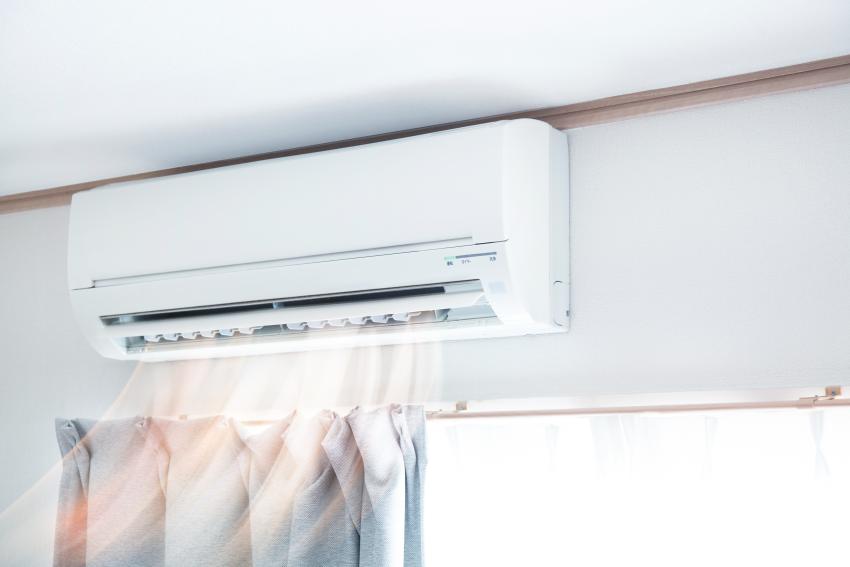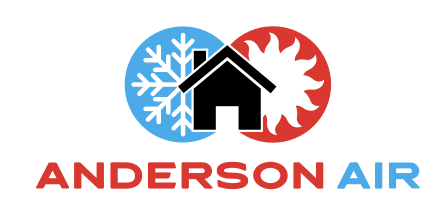How to Improve Indoor Air Quality with HVAC Systems

Maintaining good indoor air quality is essential for a healthy living environment. Many people spend a significant amount of time indoors, making the air quality in your home crucial to your overall well-being. Your HVAC system plays a vital role in regulating this air quality, and with the right strategies, you can improve it significantly. Here’s how your HVAC system can help ensure that the air you breathe indoors is as clean and fresh as possible.
Understanding the Role of HVAC Systems in Air Quality
HVAC systems are designed to control temperature, humidity, and air circulation within a building. These functions directly impact the quality of the air you breathe. When properly maintained, an HVAC system can filter out contaminants such as dust, pollen, and pet dander, preventing them from circulating throughout your home. Additionally, by controlling humidity levels, your HVAC system can help reduce the growth of mold and mildew, which can contribute to poor air quality.
Choose the Right Air Filters
One of the most effective ways to improve indoor air quality through your HVAC system is by selecting the appropriate air filter. Air filters trap airborne particles, preventing them from entering your living space. However, not all filters are created equal.
MERV Ratings: Filters are rated using the Minimum Efficiency Reporting Value (MERV) scale, which ranges from 1 to 20. A higher MERV rating means the filter can trap smaller particles. For most homes, a filter with a MERV rating between 8 and 13 is sufficient. Higher-rated filters, such as HEPA filters, are typically used in environments where air quality is of utmost importance, like hospitals.
Filter Maintenance: Regularly replacing your air filters is crucial. Over time, filters become clogged with particles, reducing their effectiveness and forcing your HVAC system to work harder. This not only compromises air quality but also increases energy consumption.
Control Humidity Levels
Humidity plays a significant role in indoor air quality. High humidity levels can lead to the growth of mold and mildew, which can release spores into the air, potentially triggering allergies and respiratory issues. Conversely, air that is too dry can cause irritation in the respiratory tract, dry skin, and can even damage wooden furniture.
Your HVAC system can help you maintain optimal humidity levels. Here’s how:
Dehumidifiers: In areas with high humidity, consider adding a dehumidifier to your HVAC system. Dehumidifiers work by removing excess moisture from the air, helping to prevent the growth of mold and mildew.
Humidifiers: In contrast, if you live in a dry climate, a humidifier can add necessary moisture to the air, preventing it from becoming too dry. Properly balanced humidity levels (ideally between 30% and 50%) contribute to better indoor air quality and comfort.
Ensure Proper Ventilation
Ventilation is another critical factor in maintaining good indoor air quality. Proper ventilation ensures that fresh air circulates throughout your home while stale air, along with contaminants, is expelled.
Natural Ventilation: Whenever possible, open windows and doors to allow fresh air to circulate. This is especially important when performing activities that generate pollutants, such as cooking or cleaning.
Mechanical Ventilation: Your HVAC system can be equipped with ventilation fans that help remove stale air and bring in fresh air from outside. This is particularly useful in homes that are well-sealed for energy efficiency, where natural ventilation may be limited.
Regular HVAC Maintenance
Routine maintenance of your HVAC system is key to ensuring it functions efficiently and continues to provide clean air. Regular servicing by a licensed technician will include:
Cleaning Coils and Ductwork: Dust and debris can accumulate in the coils and ducts of your HVAC system, reducing efficiency and potentially introducing contaminants into the air. Cleaning these components regularly helps maintain good air quality.
Inspecting and Sealing Ducts: Leaky ducts can draw in dust, insulation particles, and other pollutants, which then get circulated throughout your home. Sealing these leaks can prevent this and improve the overall efficiency of your HVAC system.
Checking for Proper Airflow: Ensuring that your HVAC system has adequate airflow is essential for both comfort and air quality. Restricted airflow can cause the system to work harder, leading to a build-up of contaminants.
Upgrade to Advanced Air Quality Solutions
For those seeking to take indoor air quality to the next level, there are advanced solutions that can be integrated into your HVAC system. These include:
UV Germicidal Lights: Ultraviolet (UV) germicidal lights can be installed within your HVAC system to kill bacteria, viruses, and mold spores as they pass through the air handler. This technology is particularly beneficial in homes where residents suffer from allergies or asthma.
Air Purifiers: Whole-home air purifiers can be added to your HVAC system to remove even the smallest particles from the air, including volatile organic compounds (VOCs) and odors. These purifiers use advanced filtration and ionization techniques to clean the air more effectively than standard filters.
Ventilation Systems with Heat Recovery: Heat recovery ventilators (HRVs) and energy recovery ventilators (ERVs) are systems that improve ventilation while minimizing energy loss. They work by exchanging the stale indoor air with fresh outdoor air, all while transferring heat between the two streams to maintain indoor comfort levels.
Monitor Indoor Air Quality
Finally, to ensure that your efforts to improve indoor air quality are successful, consider investing in an indoor air quality monitor. These devices continuously measure various air quality parameters, such as humidity, temperature, and levels of pollutants. Some models can even send alerts to your smartphone, allowing you to take immediate action if air quality dips below safe levels.
By understanding and optimizing the various components of your HVAC system, you can significantly improve the air quality in your home. Regular maintenance, proper filtration, humidity control, and ventilation all play crucial roles in ensuring that the air you and your family breathe is clean and healthy. Whether you are making simple adjustments or investing in advanced air quality solutions, your HVAC system is a powerful tool for creating a healthier indoor environment.
Take action today to breathe easier tomorrow—your HVAC system is your best ally in maintaining superior indoor air quality.
